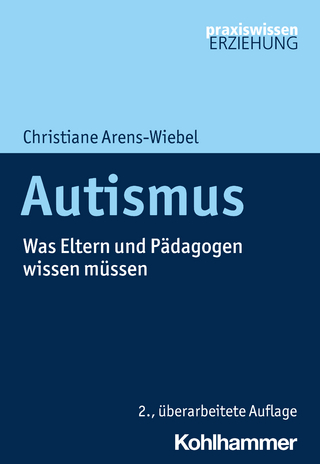
Gifted Program Evaluation
Prufrock Press (Verlag)
978-1-61821-849-0 (ISBN)
Faced with budget challenges, many districts cannot afford to hire an outside consultant to conduct a formal evaluation of their gifted programs. Districts may wish to conduct their own in-house program evaluation. The second edition of Gifted Program Evaluation: A Handbook for Administrators and Coordinators is designed to assist administrators in designing, conducting, and reporting on an evaluation of their gifted programs. Written with the busy administrator in mind, this handbook includes an overview of evaluating programs to ensure that (1) the program structure is based on best practice, (2) students are achieving at levels commensurate with their abilities, and (3) the program develops skills that gifted students will need to be meaningful contributors in society, including higher level thinking, communication, and affective skills. The book provides all of the tools to assist evaluators, including an in-depth description of how to conduct a program evaluation, the mechanics of collecting and analyzing a variety of different data sources, and how to organize, write, and share the findings. It also features reproducibles, including interview and survey question banks, classroom observation tools, professional development forms, and program element checklists.
The National Association for Gifted Children’s mission is to support those who enhance the growth and development of gifted and talented children through education, advocacy, community building, and research. NAGC aims to help parents and families, K–12 education professionals including support service personnel, and members of the research and higher education community who work to help gifted and talented children as they strive to achieve their personal best and contribute to their communities. Virginia H. Burney, Ph.D., is a long-time advocate for gifted students and consults with teachers, districts, and state departments across the U.S. in the development of high-quality services for gifted learners.
PART I: The Mechanics of Conducting Program Evaluation Chapter 1 Purpose and Process of Evaluating Gifted Programs Chapter 2 Getting Started Chapter 3 Data Collection Chapter 4 Data Analysis Chapter 5 Writing and Disseminating Findings PART II: Evaluating the Structure and Effectiveness of Gifted Programs Chapter 6 Program Design Chapter 7 The Identification Process Chapter 8 Curriculum and Instruction Chapter 9 The Affective Domain Chapter 10 Professional Learning Chapter 11 Program Effectiveness Chapter 12 What’s Next? Participating in an External Program Review References Appendix A NAGC Pre-K–Grade 12 Gifted Programming Standards Appendix B Sample Letters to Stakeholders for Program Review and Program Evaluation Appendix C Sample Program Student Survey Appendix D Sample Program Parent Survey Appendix E Sample Program Teacher Survey Appendix F Sample Cover Letter or E-Mail for Parent Survey Participants Appendix G Master List of Structured Interview Questions Appendix H Master Checklist of Program Elements Appendix I Tips for Data Collection Appendix J Professional Learning Documentation Appendix K Assessing Classroom Differentiation (ACD) Protocol—Revised About the Authors
| Erscheinungsdatum | 30.07.2019 |
|---|---|
| Sprache | englisch |
| Maße | 210 x 280 mm |
| Gewicht | 480 g |
| Themenwelt | Sozialwissenschaften ► Pädagogik ► Sonder-, Heil- und Förderpädagogik |
| ISBN-10 | 1-61821-849-2 / 1618218492 |
| ISBN-13 | 978-1-61821-849-0 / 9781618218490 |
| Zustand | Neuware |
| Haben Sie eine Frage zum Produkt? |
aus dem Bereich


